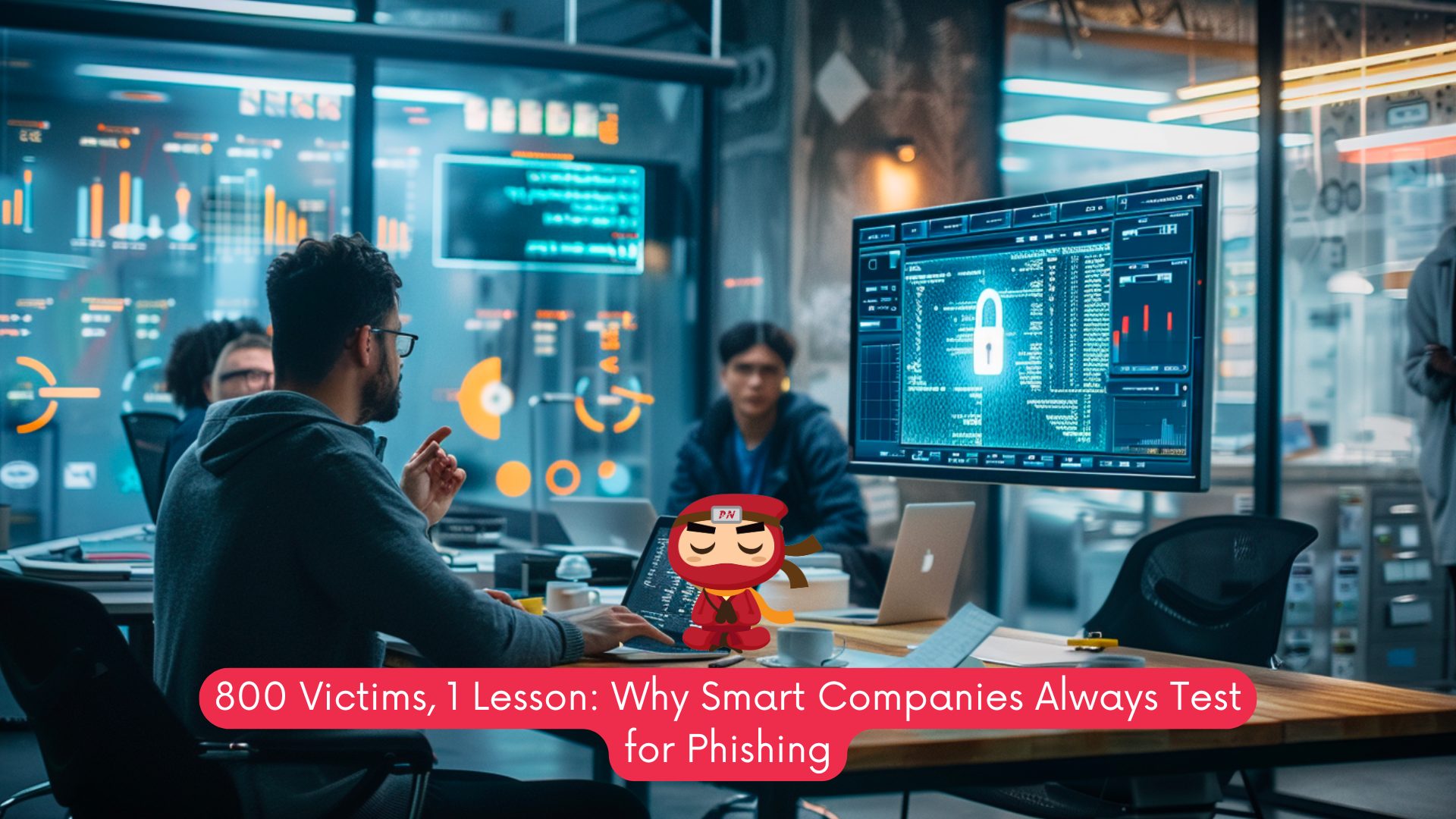KEEP IN TOUCH
Subscribe to our mailing list to get free tips on Data Protection and Cybersecurity updates weekly!






With the global shift towards digitalisation, cyber threats loom larger than ever, with email phishing standing out as one of the most pervasive and damaging attack vectors.
Businesses, regardless of size or industry, face relentless attempts by cybercriminals to exploit human error and technological vulnerabilities. Deploying a proper email phishing simulation is not just a precautionary measure. It is an essential component of a robust cybersecurity strategy. Without it, organisations remain dangerously exposed to breaches that can lead to financial losses, reputational damage, and regulatory penalties.
Phishing attacks have evolved far beyond the crude, poorly written scams of the past. Modern phishing emails are sophisticated, often impersonating trusted entities such as banks, government agencies, or even internal company communications. These deceptive messages trick employees into divulging sensitive information, clicking malicious links, or downloading harmful attachments. The consequences can be catastrophic, ranging from data theft to ransomware infections that cripple entire systems.
What makes phishing particularly insidious is its reliance on human psychology rather than purely technical vulnerabilities. Even the most secure networks can be compromised by a single employee falling victim to a well-crafted phishing attempt. This is why proactive measures, such as phishing simulations, are indispensable. By testing employees’ ability to recognise and respond to phishing attempts, businesses can identify weaknesses and reinforce their defences before a real attack occurs.
Failing to conduct regular phishing simulations leaves an organisation blind to its own vulnerabilities. Without these assessments, employees become unaware of the tactics used by cybercriminals, making them easy targets. The absence of such training often results in a false sense of security, where businesses assume their existing cybersecurity measures are sufficient. However, no firewall or spam filter can fully eliminate the risk posed by human error.
The repercussions of a successful phishing attack extend far beyond immediate financial losses. Data breaches erode customer trust, damage brand reputation, and can lead to severe legal consequences, especially under stringent regulations such as Singapore’s Personal Data Protection Act (PDPA). In some cases, businesses may face hefty fines or even legal action if negligence is proven. Moreover, the operational disruption caused by a breach, such as downtime, IT recovery costs, and loss of intellectual property, can all have long-term repercussions on business growth.
Singapore, as a global financial and technological hub, has seen its fair share of high-profile phishing incidents. These cases underscore the urgent need for proactive cybersecurity measures, including phishing simulations.
One of the most severe cases occurred in late 2021, when SMS phishing (smishing) scams targeted customers of OCBC Bank. Fraudsters impersonated the bank, sending fake alerts that prompted victims to click malicious links and disclose their online banking credentials. The attack resulted in S$13.7 million stolen from nearly 800 customers, one of the largest phishing-related financial losses in Singapore’s history. The incident led to regulatory intervention, with the Monetary Authority of Singapore (MAS) mandating stricter anti-scam measures for all banks, including delays in activating new payees and transaction limits.
More recently, in 2024, a similar pattern emerged when phishing scams targeted POSB customers through fraudulent emails. Cybercriminals impersonated the bank, notifying recipients about expiring digital tokens and tricking them into clicking malicious links that stole banking credentials. These attacks resulted in at least $172,000 in losses across 13 reported cases, with victims discovering unauthorised foreign currency transactions.
The Singapore Police Force subsequently issued public advisories warning against clicking bank-themed links and recommended protective measures like transaction limits and Money Lock features. These incidents collectively underscore Singapore’s ongoing vulnerability to sophisticated phishing schemes, following the record $1.1 billion lost to scams in 2024.
Implementing a phishing simulation is not merely about sending fake emails and tracking click rates. A meaningful assessment requires careful planning, execution, and follow-up to ensure lasting behavioural change.
First, simulations must be realistic, mimicking the latest phishing tactics to accurately gauge employee susceptibility. Generic or outdated templates fail to replicate the sophistication of real-world attacks, yielding misleading results. Additionally, simulations should be conducted regularly, as cyber threats evolve rapidly, and employee awareness can wane over time.
Second, the approach should be educational rather than punitive. Employees who fall for simulated phishing attempts should receive immediate feedback and targeted training to help them recognise similar threats in the future. Creating a culture of cybersecurity awareness, where employees feel empowered rather than blamed, is key to fostering long-term resilience.
Finally, organisations must track and analyse simulation results to identify trends and areas for improvement. Metrics such as click-through rates, reporting rates (of suspicious emails), and repeat offenders provide valuable insights into the effectiveness of training programmes.
Given the complexities involved, businesses should seek a trusted provider to conduct thorough and effective phishing simulations. A reputable provider will offer customised scenarios, comprehensive reporting, and actionable recommendations to strengthen security posture.
One such provider is Privacy Ninja, specialising in phishing simulations and data protection services. With deep expertise in local regulatory requirements and emerging cyber threats, Privacy Ninja helps organisations assess their vulnerability to phishing attacks through realistic email phishing simulations and tailored training. Our approach not only identifies gaps in employee awareness but also equips businesses with the tools to mitigate risks proactively.
In an era where cyber threats are inevitable, preparedness is the best defence. By partnering with a reliable provider like Privacy Ninja, businesses can transform their workforce into a vigilant first line of defence against phishing attacks, safeguarding their data, reputation, and future operations. Investing in such measures is not just prudent. It is an absolute necessity in the fight against cybercrime.